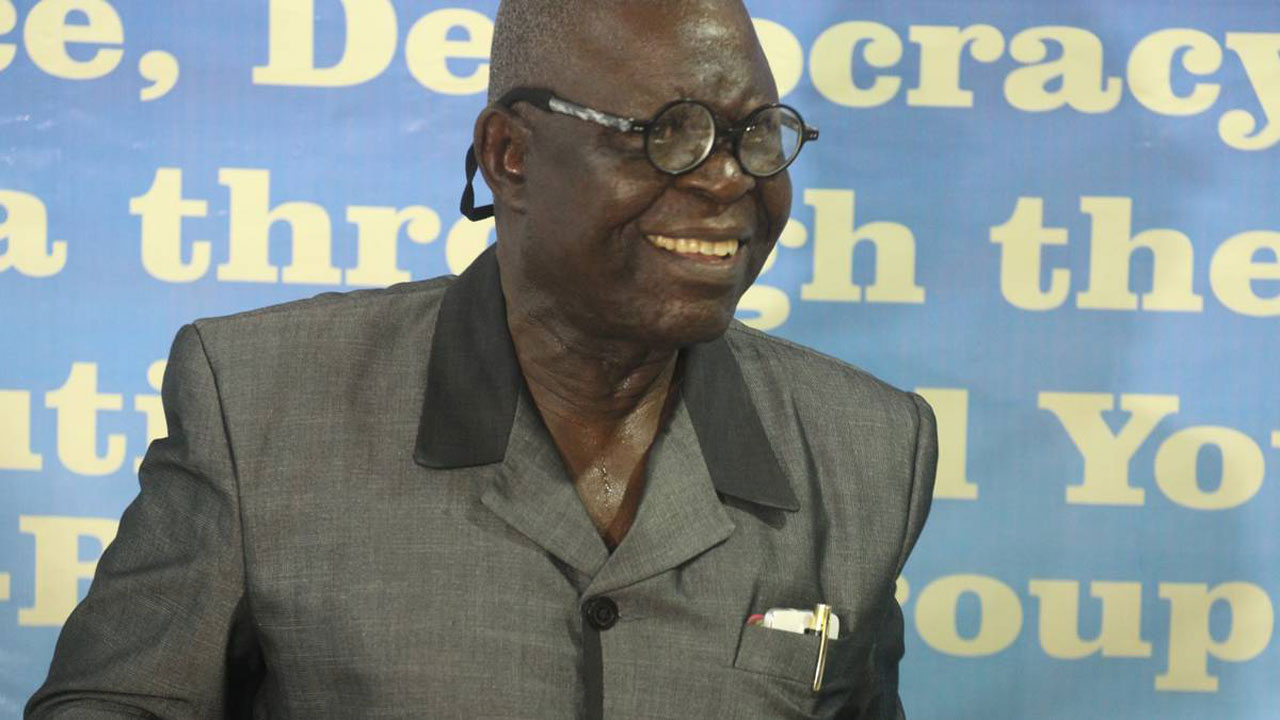 In the grand theatre of life, age is often an imperfect actor—sometimes ahead of its time, sometimes late to the show. Nigeria’s recent decision to set 18 years as the minimum age for students to sit for the university admission examinations assumes that cognitive, emotional, and social readiness bloom in unison at the stroke of adulthood. However, human development defies such neat categorisation, and this policy, though well-meaning, risks creating more problems than it solves.
In the grand theatre of life, age is often an imperfect actor—sometimes ahead of its time, sometimes late to the show. Nigeria’s recent decision to set 18 years as the minimum age for students to sit for the university admission examinations assumes that cognitive, emotional, and social readiness bloom in unison at the stroke of adulthood. However, human development defies such neat categorisation, and this policy, though well-meaning, risks creating more problems than it solves.
Before delving into the science of this age requirement, it is pertinent to deconstruct the myth of age 18, exploring both the magical and mundane aspects of this age. It’s a number etched in our collective consciousness, a symbolic threshold marking the transition from adolescence to adulthood. The myth and symbolism of age 18 reflect a transition wrapped in expectations.
At 18, young people stand at the crossroads of freedom and responsibility, a milestone celebrated in many cultures. It is the age when societies often grant the right to vote, drive, and enter into contracts, signalling the transition from adolescence to adulthood. For many, it represents the opening of doors to independence, a time of exploration, and a shedding of childhood restraints.
But is there truly something magical about this number—a sudden transformation occurring at midnight on one’s 18th birthday—or is it merely a social construct, a convenient marker in the continuous flow of human development? While 18 may be a convenient legal marker, it doesn’t reflect the vast individual differences in cognitive, emotional, and social maturity. Moreso, the meaning of adulthood varies significantly across cultures and contexts.
What one society considers mature may be seen as premature in another. This underscores the arbitrary nature of fixing 18 as the defining age of readiness for university entrance. Human development is non-linear and individualised, making it imprudent to judge students’ readiness by a single chronological marker. Indeed, human growth defies strict timelines, and maturity unfolds in unpredictable ways—making the idea of setting 18 as a universal benchmark for readiness an oversimplification.
Scientific evidence presents a more nuanced picture. While setting 18 as the marker of adulthood aligns with societal norms, the brain, especially the prefrontal cortex—responsible for decision-making, impulse control, and emotional regulation—continues to develop into the mid-20s. This means that even at 18, young adults may still be refining the cognitive skills needed to navigate higher education.
The ability to process information, focus attention, and regulate emotions—core skills needed for higher education—evolve through a complex interaction of biology, environment, and experience. This means that an age-based policy risks misjudging the true readiness of some students while forcing others to wait unnecessarily.
Research from the National Institutes of Health (NIH) shows that executive functions, essential for academic success, develop unevenly across individuals. While some students may be intellectually and emotionally prepared for university at 16, others might struggle with the same challenges well into their twenties. Rigid age-based policies risk stifling gifted students’ potential and undermining their educational momentum by forcing them to wait until they meet the age threshold. In contrast, some students may still require additional time for emotional growth. Accordingly, fixing 18 as a minimum age risk admitting students who may not yet be prepared for higher education while forcing gifted students to delay their academic journey unnecessarily.
Such delays can lead to boredom, disengagement, and even abandonment of academic pursuits, wasting talent that could benefit both the individual and society.
Nonetheless, supporters of the 18-year rule argue that emotional resilience is just as critical as intellectual ability for university success. Adolescents, though capable of handling academic content, may struggle with social pressures, independence, and the mental demands of tertiary education.
Issues such as burnout, anxiety, and poor time management are more common among younger students, particularly those who lack proper support structures.
Furthermore, setting a uniform age limit promotes social cohesion within universities, helping to foster peer interaction and reduce social isolation. Developmental psychology emphasises the importance of peer relationships during adolescence, suggesting that students in similar age groups are better equipped to support each other socially and academically.
A call for flexibility invites us to move beyond rigid, age-based restrictions, advocating for a more adaptive approach that recognises the varied paths of human development and the unique potential of every learner. While emotional preparedness is indeed essential, a rigid age limit overlooks the complexities of individual readiness. Instead of locking all students into a one-size-fits-all framework, Nigeria should adopt flexible, evidence-based pathways that cater to students’ diverse needs and learning styles.
A forward-thinking admissions framework requires Nigeria to adopt adaptive and multi-dimensional strategies that cater to the diverse abilities of students. Early college programmes would enable exceptional students to bypass the age restrictions, providing them with the opportunity to begin university studies ahead of their peers.
These programmes would integrate rigorous academic content with emotional support systems, ensuring students remain intellectually engaged without succumbing to burnout.
Younger students are paired with more experienced faculty or peers who serve as mentors, guiding them through the challenges of tertiary education. Such early exposure, already practiced in western countries, helps nurture talent and can be particularly impactful in fields such as STEM, where early access to specialised knowledge shapes future careers.
Bridge programmes, acting as transitional platforms, would allow students who need additional preparation to build the academic and emotional skills required for higher education. These pre-university courses would provide targeted instruction in key areas, such as critical thinking, academic writing, and time management. More importantly, they would offer emotional resilience training, helping students develop self-discipline and manage stress effectively. These programmes, where foundation years prepare students for the rigours of university life, have demonstrated the value of structured preparation in preventing dropouts and ensuring long-term academic success.
A merit-based assessment framework would address the inadequacies of using age as the key criterion for university entry. This approach would evaluate both cognitive skills and emotional readiness through a combination of exams, interviews, and project-based evaluations. Beyond testing for academic knowledge, these assessments would emphasise essential traits such as creativity, resilience, and leadership potential. By adopting such a model, Nigeria can better identify students who are prepared for university, regardless of whether they are under 18 or over.
Personalised learning plans would play a crucial role in supporting students admitted through alternative pathways. These plans would be tailored to each student’s strengths, learning style, and social needs.
Mentorship and dedicated counselling services would offer both academic guidance and emotional support, ensuring younger students transition smoothly into the university environment.
The use of adaptive teaching methods, such as project-based learning and online modules, would accommodate diverse learning preferences, fostering greater engagement. Continuous monitoring and feedback mechanisms would further ensure that students receive the necessary support to thrive, promoting personal and academic growth.
By adopting these strategies, Nigeria’s education system would evolve beyond the constraints of rigid age-based admissions. This multi-faceted approach would allow students to progress based on their individual readiness, not the calendar, creating a more inclusive and supportive learning environment.
In doing so, the nation would unlock the potential of its brightest minds, ensuring that no student is left waiting at the gates of opportunity simply because they do not meet an arbitrary age threshold.
In a world where time waits for no one, Nigeria must not allow its gifted students to languish in the waiting room of arbitrary age limits. Policymakers must acknowledge that rigid age restriction disregards individual differences in maturity and learning pace, potentially holding back gifted students and disrupting the educational momentum of those who complete secondary school earlier.
Moreso, the science of human development tells us that maturity is not a switch that flips at 18—it is a gradual, individualised process that requires flexibility and understanding. As the journey to maturity is rarely that predictable. policymakers must, therefore, rethink the 18-year rule and adopt a framework that reflects the realities of modern education—one that respects both the science of maturity and the art of human potential. Only then can we truly prepare our children for the future they deserve.
Professor Olaniran is Proprietor of Jire Olaniran College, Ibadan and a renowned climatologist and educational leader in Nigeria.






